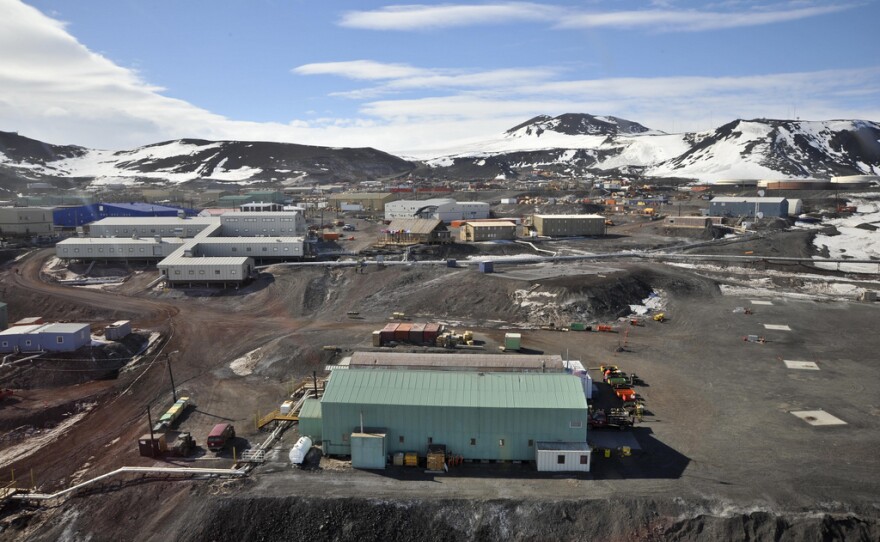Effects of the government shutdown are being felt far beyond U.S. borders — as far as Antarctica, in fact. With funding uncertain and furloughs in effect, the National Science Foundation has suspended research expeditions to its three Antarctic bases.
For researchers studying this remote part of the world, the timing of the government shutdown couldn't be worse. Antarctica's warm season is just around the corner. It's the time of year when scientists typically begin flocking south for their one annual shot at conducting important field work on a U.S. research base.
But without government employees to keep these bases up and running, research can't move forward.
"Those people make our science possible," said Matthew Siegfried, a graduate student at the Scripps Institution of Oceanography in La Jolla. He expected to be part of a December expedition that now faces cancellation if Congress doesn't reach a compromise to reopen the government by early next week.
Siegfried has been spending the holidays at McMurdo station for the past two years, maintaining remote GPS equipment and retrieving data on subglacial lakes under the supervision of Scripps glaciologist Helen Fricker. But this year, the Scripps scientists have been told that the project they're working on is "suspended" for now.
"The mood is not great," Siegfried said. "This was the last field season for this project and we were really excited to finish it up and complete our data set."
If Siegfried's trip does end up getting canceled, it would have to be pushed back a full year. And by then, he says crucial data could be permanently lost.
"You build up years of preparation to get data like this," explained Fricker. "And then it might just get taken away because of the situation we're in."
Siegfried noted that his research team has already been stretched thin under sequestration. "Our project specifically had to cut eight out of 30 or so scientists," he said. And now, the remaining members are scrambling to cope with uncertainty about how they'll be spending the next few months.
"I know other graduate students who've sublet their apartments for their trip," Siegfried said. "So basically, they're homeless right now and they don't know whether they should be looking for housing."






